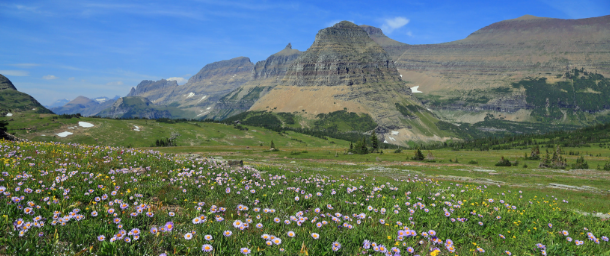Joe Biden’s first few days as President were a flurry of activity, including the signing of 30 executive orders. Shortly after the election, I wrote about what the Biden presidency might mean for environmental policy, and how executive orders would be the main policy-making instrument available. Most of these orders pertained to the COVID-19 pandemic and the economy, but two important ones concern the environment.
The first is directly relevant to Montana: Biden revoked the permit to complete the Phase IV segment of the Keystone Pipeline, which was intended to transfer the heavy, highly polluting tar sands oil from Alberta down to Gulf Coast refineries, and was to run through Northwest Montana. Governor Greg Gianforte released a statement urging Biden to allow construction, calling it a lifeline for rural Montana. I’ve written about the Keystone pipeline issue and how it would impact Montana, but to briefly summarize: while it’s true that pipeline construction would create jobs, the vast majority of these jobs would last only a year or two, and Montana would be left with the more permanent environmental costs of inevitable pipeline spills. Struggling rural Montana economies frankly need a better answer than a pipeline (more on that below).
Biden also signed an order rejoining the Paris Accords, ending America’s brief reign as the only country not in the agreement. However, this is largely a symbolic action, as the agreement targets are non-binding. For all the many pledges made by cities, states and countries, what actually matters is concrete policy.
On that front, on Wednesday, January 27th Biden signed a second salvo of executive orders focused on climate change. Most importantly, federal agencies are ordered to purchase carbon-free electricity. But another order that will likely impact Montana pauses any new oil or gas drilling leases of public land. The Trump administration leased 5.4 million acres of public lands, including a patch in Western Montana, to oil and gas companies. It also lifted protections in many other areas, including part of the upper Missouri River basin. Biden’s order does not reverse these actions, but it’s a clear signal that new public lands will not be open for drilling any time soon, and reversals may be coming down the line.
Still, making significant progress towards decarbonizing the economy requires major new spending to build the massive amounts of infrastructure required, including building out solar, wind, and geothermal capacity, refurbishing buildings to use electric heating (fed by clean electricity) instead of gas, electric car charging stations, and huge amounts of new transmission lines to meet all this extra electricity demand. That would mean a whole lot of new long-lasting jobs, probably enough to employ laid off fossil fuel workers many times over (certainly more than a pipeline). But new spending requires laws passed by congress, and a big climate change bill looks unlikely to have enough votes. We may see Biden attempt to stretch the limits of what can be accomplished without the help of congress.


1 Comment
I wish our legislators and governor understood and supported Assistant Professor Brock’s research.